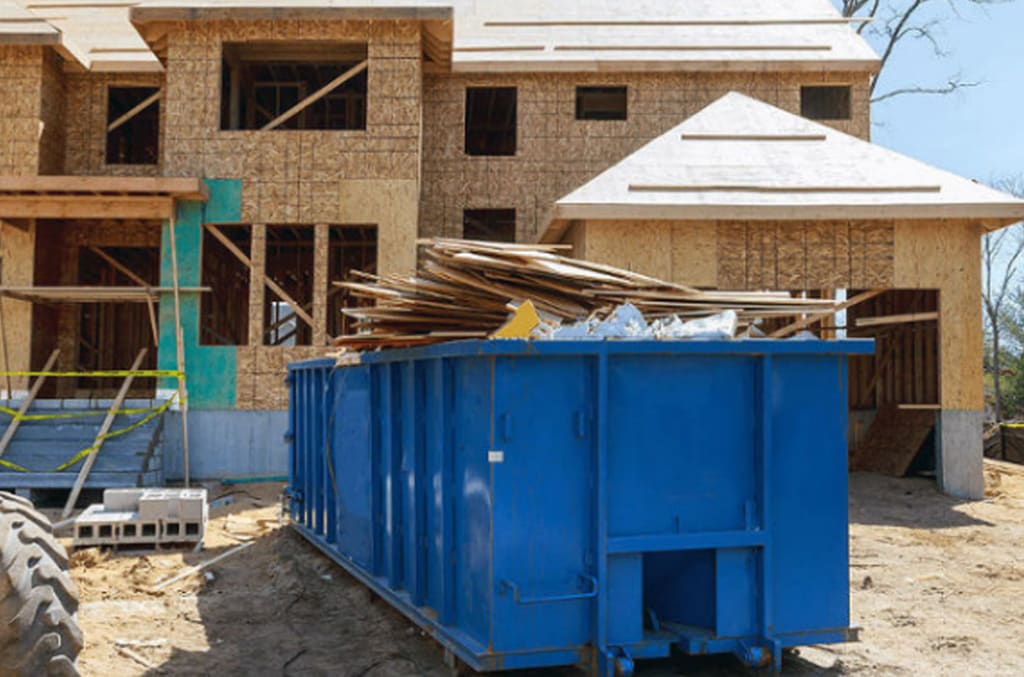Preserving Health with Proper Waste Disposal: Why Dumpster Rentals are Crucial for Healthcare Facilities
Proper waste disposal is essential to maintaining health and safety for individuals and the environment.

Proper waste disposal is essential to maintaining health and safety for individuals and the environment. Healthcare facilities must uphold the significance of proper waste disposal as they generate multiple types of waste that pose health risks if not disposed of correctly; hence dumpster rentals become essential tools.
Why Dumpster Rentals Are Essential to Healthcare Facilities
Dumpster rentals are essential to healthcare facilities for multiple reasons. First and foremost, dumpster rentals offer an effective and practical means of managing waste; healthcare facilities can quickly dispose of large quantities of infectious or hazardous material. Furthermore, Dumpster Rental Service can reduce injury risks when handling heavy or bulky material.
It can also help healthcare facilities reduce waste management costs by forgoing costly equipment like compactors and shredders that could otherwise be required. In addition, dumpster for rent cape cod is often more cost-effective than hiring a waste management service provider.
Dumpster rentals can also help healthcare facilities meet regulatory requirements. There are countless regulations regarding handling and disposing of hazardous and infectious waste; healthcare facilities can ensure they meet their legal responsibilities by renting from a provider that adheres to these rules.
The Risks of Improper Waste Disposal in Healthcare Facilities
Improper waste disposal at healthcare facilities can pose numerous dangers. These risks could include physical harm, exposure to infectious agents, contamination of the environment, and increased healthcare costs.
Healthcare facilities generate various types of waste, including infectious, hazardous, and general. For example, items contaminated with blood or bodily fluids (needles, sharps, and clothing) constitute infectious waste; hazardous waste includes chemicals and pharmaceuticals that pose risks to human health or the environment; general waste includes non-hazardous materials (food waste and packaging materials).
Each type of waste presents unique risks. For instance, infectious waste has the potential to transmit diseases if handled and disposed of improperly; hazardous materials pose chemical exposure risks if not handled responsibly; general trash contributes to environmental pollution as well as waste management costs.
The Importance of Proper Waste Disposal in Healthcare Facilities
Proper waste disposal is vital to ensuring the safety of healthcare facilities and their surrounding communities, reducing risks of injury, illness, and environmental pollution.
Proper waste disposal can play an essential role in helping healthcare facilities reduce expenses. By responsibly disposing of hazardous and infectious waste, healthcare facilities can lower their risk of healthcare-associated infections or injuries resulting from mishandled medical waste, leading to lower healthcare expenses.
Proper waste disposal can assist healthcare facilities in meeting regulatory requirements. There are regulations to ensure the safe handling and disposal of hazardous and infectious waste. Hence, compliance with them is vital for keeping accreditation alive and avoiding fines or penalties that might otherwise ensue.
Conclusion
Waste disposal is essential to safeguarding individual health and the environment, particularly healthcare facilities that produce different forms of waste that could pose potential threats to public health if improperly managed. Healthcare facilities should have effective waste disposal systems, including dumpster rentals, for proper waste removal.
Dumpster rentals provide a cost-efficient solution for healthcare facilities to manage waste efficiently. By renting dumpsters, healthcare facilities can reduce risks of injury, reduce management costs, and quickly meet regulatory requirements. In addition, by adequately handling waste management processes in healthcare facilities, safety is maintained for patients, staff, and the environment.





Comments (1)
Very interesting topic. Thank you for posting.